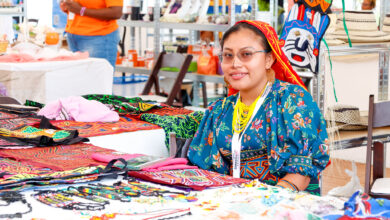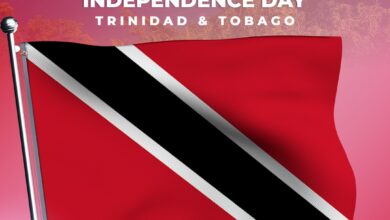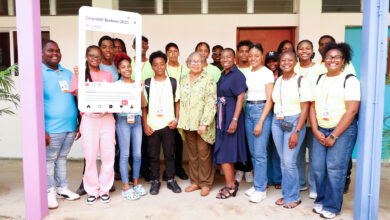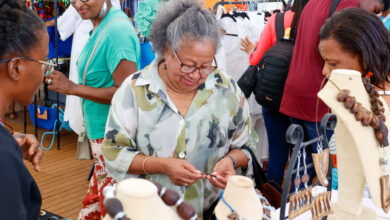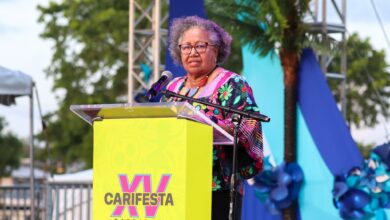(CARICOM Secretariat, Turkey, Greater Georgetown, Guyana) Newly accredited Ambassador of The Bahamas to the Caribbean Community (CARICOM), His Excellency Picewell Forbes is by no means happy with the classification of most CARICOM highly-indebted States as “middle income economies,” and has insisted that CARICOM step up its advocacy on the issue as well as other development issues.
He told the audience at his accreditation ceremony at the CARICOM Secretariat on Tuesday (6 November) that such a classification did not consider the Region’s vulnerability to “external shocks, poverty levels, the real distribution of wealth within a country and the resulting global inhibiting regulations imposed on states that are deemed middle-income economies.”
Citing climate change as a typical example, Ambassador Forbes pointed to the destruction of life and property that the recent super storm Sandy left in its wake as it barrelled a path through Jamaica, Haiti, Cuba, the Bahamas and the USA. He was adamant that the issue must be on the front burner of negotiations with third states because of the varying factors that impacted our developmental progress.
“We must intensify our advocacy efforts on this topic during our deliberations with third states, especially the membership of the G20 and other influential entities,” he averred.
He added that his country attached great significance to the issue of climate change and was paying keen attention to the outcomes of the 17th Meeting of the Conference of the Parties to the United Nations Framework Convention on Climate Change, particularly as they affected Small Island Developing States (SIDS).
The newly accredited Ambassador also expressed confidence that CARICOM had evolved through a series of challenges, but had remained steadfast “to its goals of unity of purpose and unity of voice in the protection and promotion of the Community’s developmental goals.”
However, he was of the opinion that while it was also necessary for Member States to become less dependent on third states by diversifying their economies, we must continue to promote and upgrade that which currently sustains our economy, particularly our tourism industry, which in his estimation, is the number one industry in the Region.
“It is our bread and butter industry. The Caribbean region has a comparative advantage in this industry. Helping to keep this industry strong and vibrant, will be helping to keep Caribbean economies strong and vibrant. We, as a collective body, must do everything in our institutional power to upgrade and maintain the value of our tourism product,” the Ambassador asserted.
It was against this background that Ambassador Forbes pointed to the high incidence of crime and violence in the region, noting that this was damaging the Tourism industry and tourism products. Organised crime and gang activity, he added, continued to infringe the civil liberties and peace of mind of Caribbean societies.
“…the Region must unceasingly strive to save its youth, our richest resource, from travelling down a path of destruction and devastation,” Ambassador Forbes concluded.
Ambassador Forbes, who at the time, served as South Andros Member of Parliament in the Bahamas, was appointed under the new Perry Christie Administration as the Ambassador to CARICOM and Non-resident High Commissioner to Commonwealth countries in the Caribbean. He has responsibility for outlining his government’s policies to the Community and monitor developments in policy in those countries, as well as advising potential investors about opportunities in the Bahamas, the Nassau Guardian reported.

